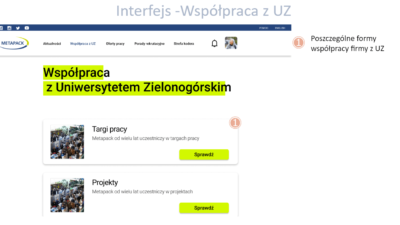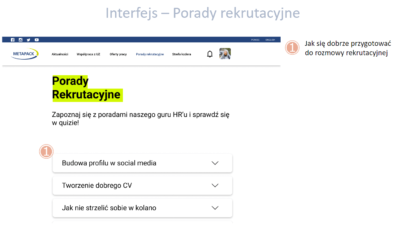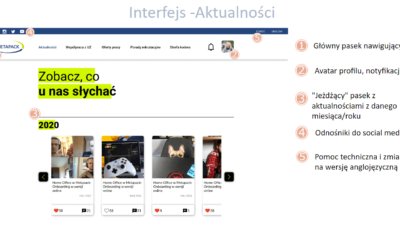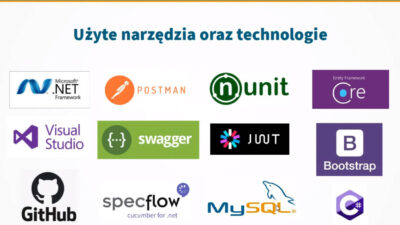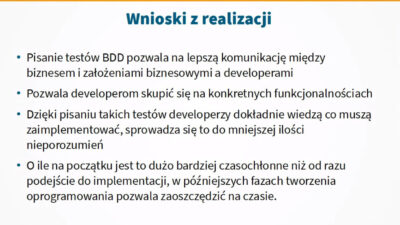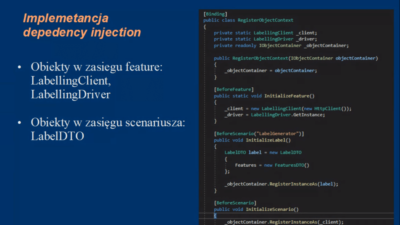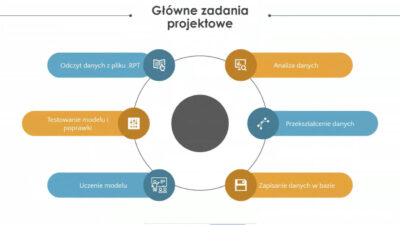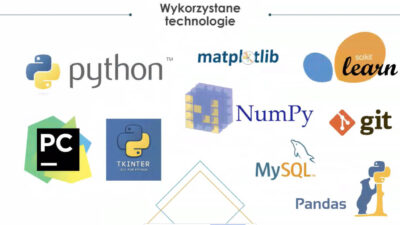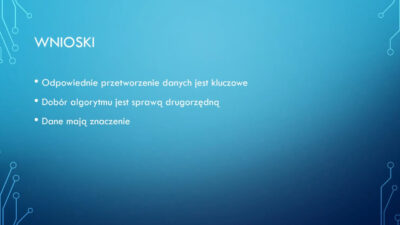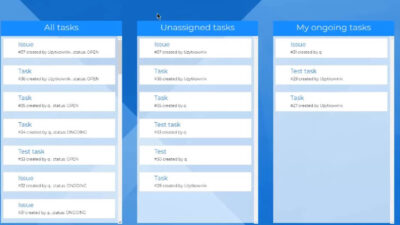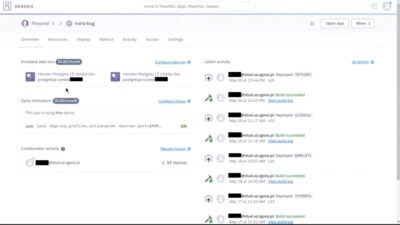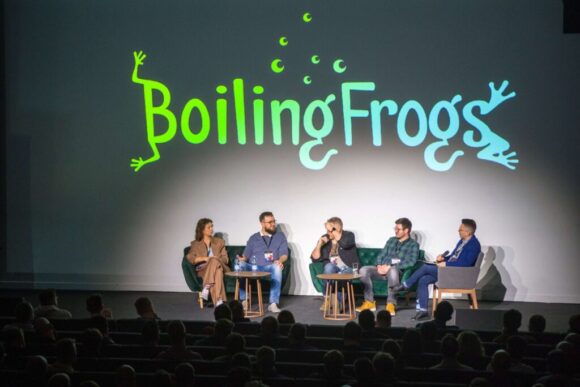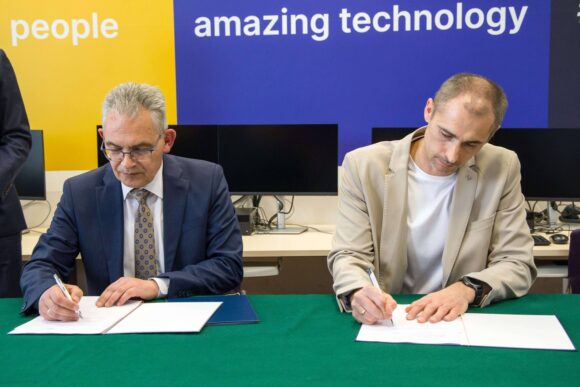
Studies in practice – summary of UZ group projects
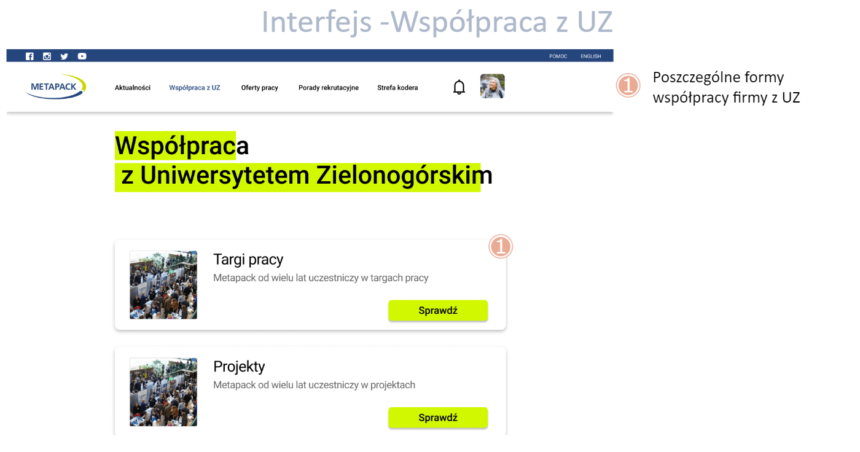
For several years now, we have been cooperating with the University of Zielona Góra on student projects as part of combining knowledge with practice, as well as bringing science and business closer. 2020 was different, not only due to lockdown.
Metapack for students
We always value working with students and we are eager to spot young talents who are abundant in the university corridors. We are frequent visitors to the university and eagerly host students to our annual Summer Academy.
Group projects are another initiative that allows us to get to know young people interested in the IT world. It is also a great opportunity for students to test their skills in working with a business partner, learn more about the principles of such cooperation, and at the same time acquire some hard skills.
Not only young people benefit from the projects. For group supervisors, i.e. Metapackers, it is a chance to prove themselves as mentors. Therefore, they gain the opportunity to learn more about themselves, but also about the company and the environment in which we operate.
Atypical 2020
This year we faced several challenges. The first and most important of them was, of course, lockdown, which required the adaptation of means of communication and work tools to allow young people to be comfortable while carrying out their tasks. Our tutors wanted UZ students to learn as much knowledge as possible from the projects with a lot of freedom in the methods or solutions chosen.
The University of Zielona Góra itself and its coordinators, who made sure that everything took place under controlled conditions, turned out to be a great support.
Another kind of challenge was to adapt the projects to the new direction. So far, we have developed topics and issues with IT students in mind. This time, the project was joined by a relatively young field of study at the Faculty of Computer Science, Electrical Engineering and Automation at the University of Zielona Góra – Electronic Business, focusing on business analytics, electronic communication, cloud computing services, social media and e-commerce.
Testing, reporting, design
What have we prepared for students this year? Together with Metapackers, we have developed four issues:
- Modern approach to testing websites, mentor: Danuta,
- Predicting the delivery time of parcels using Machine Learning, mentors: Łukasz and Kacper,
- Bug reporting system for testers, mentor: Marcel,
- An application promoting cooperation between Metapack and the University of Zielona Góra, mentors: Patrycja and Wiktor.
Made by students, for students
The last issue was dedicated to students of Electronic Business, and the idea for this topic resulted from a certain need:
“Metapack and the University of Zielona Góra have been working closely together for many years,” says Wiktor, the project supervisor. “We are constantly looking for an information channel through which we will be able to reach students with the information that together we have created an environment, where they can learn, gain experience and, perhaps, after graduation – work. Therefore, we decided to ask students to design an application dedicated to our cooperation.”
It is an ambitious plan, but the mentors had no doubts that the young people would be able to handle it. They wanted to support students, but at the same time give them a lot of freedom to get to know their needs and visions better. After all, such a platform would be used primarily by university students.
“I was very keen to provide students with as much practical knowledge as possible and to present the value of the UX approach,” says Patrycja. “As a student, I had such expectations from the leading guest practitioners from the e-commerce market. As a mentor, I tried not to fall into the trap of my own ideas and assumptions.”
The remaining three topics were chosen by IT students. They had the opportunity to learn how service testing looks like in practice, they could propose their own solutions in the field of error reporting, as well as – learn the basics of Machine Learning.
<h2>Testing services – level: Ninja</h2>
The issue of a modern approach to testing websites was developed by Danusia from the Ninja team. This year’s edition was a development of last year’s topic: ‘Modern approach to creating websites’. Danusia’s team is currently working on new projects in which quality and efficiency play a very important role. It was therefore natural for her to propose a topic in which she could share her rich and constantly developed experience.
Artificial intelligence in e-commerce?
Predicting parcel delivery time using Machine Learning was an issue discussed with the students by Łukasz and Kacper. Where did the idea for such a topic come from?
“Metapack, because of what it does, generates and processes huge amounts of data. If this data were to be recycled, it could be used to develop a new product or even many different services”, Łukasz explains.
The implementation of this topic was not only a challenge for young people from the university, but also an opportunity for Metapackers to deepen their knowledge and look for new solutions to a problem that has been interesting for us for a long time. The use of Machine Learning is not a service that we provide, but an element that we research and check as a potential element of improving our services. So participating in the group project was an opportunity for our employees to expand their knowledge into new areas.
“The subject of machine learning itself is on my list of interests since college. Even my engineering thesis was on a similar topic. Additionally, I think that the prediction of the parcel delivery time by couriers is quite an interesting issue, because it is quite important information for people who shop online. They often choose a specific courier not only by looking at the price of the shipment, but also at the time of delivery”, said Kacper.
Bugs, lots of bugs, chaos
An interesting challenge for students was also prepared by Marcel, who a year ago himself was a participant in university group projects. Now he stood on the other side as a group mentor, with a great awareness of his own expectations, still as a student and already as a teacher. When asked why he chose the bug reporting topic, Marcel replied:
“The answer is quite simple – while working on the project, we used a certain tool that did its job fairly well at the beginning, but with time the entries became chaotic. I found that group projects are the perfect opportunity for students to show what they think a bug reporting application should look like.”
UZ group projects – what did the students learn?
As the cross-section of topics and tasks shows, we have set the bar quite high, as always. Each participant of the projects could get a lot from participation, and the amount of knowledge and skills acquired, of course, depended on his or hers commitment. As usually, students of the University of Zielona Góra didn’t disappoint us. And you have to remember that they faced their own challenges. Not only did they implement online projects, but they also had to reconcile them with the classes ongoing at the university and their own deadlines.
One of the participants drew attention to difficulties in communication and not entirely clear schedule – these elements will certainly be thoroughly discussed with UZ coordinators and we will try to improve the implementation of future projects.
Working on the tasks selected for them, students had the opportunity to get to know the business environment. They could put themselves in the role of a contractor for a client with specific expectations. They could practice the ability to work in a group in unusual, online conditions.
“During the project, I learned how to efficiently cooperate with the client and provide them with the feedback obtained,” Magda from Electronic Business summarizes her tasks. “It was also fun to see how the entire application development process for the company is going. This is something that we wouldn’t learn in any other way without participating in the actual project.”
The most important goal of the projects, however, was to acquire hard skills, i.e. specific knowledge that students will be able to use in practice, implementing their own ideas or taking up their first job. See what young people from UZ learned during this year’s projects.
“Mainly technologies that I simply didn’t work with before,” says Bartek, participant of Danusia’s team on testing websites. “It was useful to practice not only such tools as Postman, but also SpecFlow technologies or working on an ORM-based database.”
Wiktor, a participant in the project “Parcel delivery time prediction using Machine Learning”, also points to the specific tools he worked with when carrying out the tasks:
“I learned a lot to using the ML.NET library. I also got acquainted with the basic theory of Machine Learning. “
Wiktor’s colleague from the project – Mikołaj – adds:
“During the project, I learned how important a role in Machine Learning is to prepare the appropriate learning data.”
Electronic Business students also gained skills valuable from the point of view of their field of study and future professional development:
“During the implementation of the project, I got to know the entire flow of the application design development process, from collecting customer requirements to user research, providing feedback to the customer, to handing over the final version,” sums up Kacper. “It was very interesting, because so far we haven’t done anything similar in college, and the opportunity to experience it through a simulated order from a company gave great results.”
Metapackers as mentors
As we wrote, UZ group projects are an opportunity for development not only for students, but also for Metapack employees who play the role of guides, teachers, mentors and coaches.
What challenges did these roles pose for them?
“From my perspective, it was an approach to the project from the point of view of a client who said what he wanted, but didn’t know what was inside,” admitted Łukasz.
It was also difficult to reconcile work duties with the supervision of students. But Marcel found a solution:
“Discord meetings with the whole group and the university leaders every two weeks were very helpful. During these ‘sprint reviews’ students boasted about the progress of their work. “
As it turned out, the very creativity and skills of the students were also a kind of difficulty:
“For me, the biggest challenge was to maintain an appropriate level of focus on providing the necessary support and information to the project participants. The students themselves, whose interesting projects and observations made me think too often about the fact that something like this could be successful, that such an application could be made, were to blame here. My thoughts drifted away from my role as project supervisor and headed towards the possibilities that loomed before me.”
And how do our mentors evaluate the course of tasks?
“Openness and the ability to look at the same problems from a different perspective is desirable in life and at work. I had the pleasure of working with ambitious and enthusiastic people who have such openness,” says Danusia from the Ninja team.
Łukasz and Kacper, exploring the problem of artificial intelligence and the possibility of using it in Metapack products, learned a lot from the project implementation.
“During the project, I learned some new concepts about Machine Learning,” sums up Łukasz. “The fact that, at present, in a difficult time, we managed to complete a project with groups of students and conduct a demo on a working application can be considered a success.”
Kacper added:
“It was a fun life experience for me – being a student mentor on a project that is simply interesting. I was learning how to share knowledge, how to listen to students’ expectations, how to find compromises in the whole project.”
Marcel, who carried out the issue for testers, gained not only knowledge about a specific tool, but also appreciated the possibility of looking at the project from the point of view of the manager:
“A year ago, I was on the other side of the project, which now gave me a full picture of how it went. I also got to know the role of Project Manager better, because apart from being technical advisors, we were managers for our groups. I also had to expand my knowledge of Kotlin, because one of the groups carried out a project with it. These two months have been a really interesting experience.”
Patrycja and Wiktor also positively assess cooperation with students of Electronic Business:
“I will remember this project for a long time and with a wide smile, because thanks to it I met a group of very talented students who in the near future will enter the labor market with a very diverse approach and extraordinary abilities,” says Patrycja.
As she emphasizes, the skills acquired by project participants are important aspects of their future professional tasks. And although they did not necessarily get infected with a passion for designing and conducting research on the usability of applications, they got to know an extremely important point of view for business:
“Even though most students do not see their future as a UX specialist after the end of the project, something much more important has happened. Students saw the value of designing solutions based on research on potential users and market analysis, which is one of the most valuable experiences they could have had before leaving the university.”
Wiktor learned his own lessons from the project. As he claims, it changed him as a mentor, specialist and as a human being:
“You definitely have to be very open. Often, ideas that seemed mediocre at first turned over time into the most elaborate designs. So creativity should not be nipped in the bud. Additionally, you have to choose the words and their weight skillfully. Sometimes you can mention something ‘casually’ without wondering how much impact it might have on the other side. “
And when it comes to group projects, it is precisely the creativity that the students showed the most, often surprising their mentors with a fresh approach and unusual solutions. The results of the project perfectly show that greater freedom and the greater trust can get a lot out of people. Patrycja summed it up perfectly:
“UZ students really inspired us and showed the world from a different perspective. The research and projects they have carried out and presented have brought great value to future Metapack projects.”
Cooperation between business and science – a step towards better education
The experience that we gain through cooperation with the University of Zielona Góra and students shows us that combining business with science is an important stage of education. It allows students to verify their knowledge with practice, universities – to diversify the teaching process, and us – to learn about the needs of learners who will soon enter the labor market.
Wiktor, the mentor of Electronic Business students, said:
“I think that cooperation between business and educational institutions should become a priority, whether we are talking about universities and IT companies, vocational schools and manufacturing companies or any other level of education and industry. I think that the values for both sides cannot be overestimated here in any way. “
Thanks
Finally, we would like to thank:
Dr inż. Anna Pławiak-Mowna and dr inż Małgorzata Mazurkiewicz for coordinating project activities, organizational and substantive support for students, for openness and enabling us to cooperate with the next year young people.
Project supervisors: Danusia, Patrycja, Łukasz, Kacper, Marcel and Wiktor , who set aside time for additional activities related to project management.
All students for their work, finding themselves in the conditions of remote project management, which was one of many for them. We hope that the experience you have gained will pay off in the future, and will allow you to discover your potential and new, previously unknown development paths.
